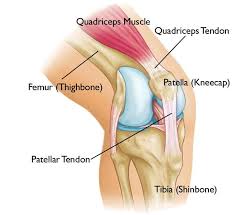

Medically Reviewed by Dr. Chirag Arora
Written by Swasthya Saarthi Editorial Team, last updated on 24 February 2025

Knee pain is a widespread issue affecting people of all ages. Whether you're an athlete, a fitness enthusiast, or experiencing age-related wear and tear, knee pain can disrupt daily activities. Understanding knee pain causes is crucial for effective prevention and treatment. In this blog, we’ll explore the top knee pain causes, symptoms, treatment options, and ways to prevent further complications.
1. Osteoarthritis
Osteoarthritis is one of the most common knee pain causes. It results from the gradual breakdown of cartilage, leading to pain, stiffness, and swelling in the knee joint.
2. Ligament Injuries
Tears or sprains in knee ligaments, such as the ACL, MCL, and PCL, can be painful and destabilizing. Sports injuries and accidents are the primary knee pain causes related to ligament damage.
3. Meniscus Tear
A torn meniscus, often caused by sudden twisting movements, leads to swelling, stiffness, and difficulty in movement. This is a common knee pain cause, especially among athletes.
4. Patellar Tendinitis
Also known as "jumper's knee," this condition arises due to overuse of the knee joint, leading to inflammation in the patellar tendon. Repetitive jumping activities make this one of the frequent knee pain causes in athletes.
5. Bursitis
Bursitis occurs when the bursae, fluid-filled sacs that cushion the knee, become inflamed. Repetitive motions or prolonged kneeling are some of the primary knee pain causes leading to bursitis.
6. Patellofemoral Pain Syndrome (PFPS)
PFPS, or runner’s knee, is a condition where the kneecap does not move correctly, causing pain and discomfort. Poor alignment and overuse are among the knee pain causes of PFPS.
7. Iliotibial Band Syndrome (ITBS)
ITBS occurs when the iliotibial band, a thick band of tissue along the outer leg, becomes tight or inflamed. This is one of the knee pain causes commonly seen in runners and cyclists.
8. Gout
Gout, a type of arthritis caused by uric acid crystal buildup, leads to sudden and severe knee pain. Dietary choices and genetic factors contribute to this knee pain cause.
9. Knee Infections
Though rare, bacterial infections in the knee joint can lead to intense pain, swelling, and fever. Such infections are serious knee pain causes requiring immediate medical attention.
10. Knee Fractures
A fracture in the knee, resulting from trauma or osteoporosis, causes severe pain, swelling, and difficulty in movement. Falls and accidents are common knee pain causes for fractures.

While knee pain causes vary, common symptoms include:
If you experience any of the following, consult a doctor immediately:
Depending on your condition, you may need to consult:
For many knee pain causes, exercises can help alleviate pain and improve mobility:
Mild knee discomfort due to overuse is normal, but if the pain worsens, occurs frequently, or is accompanied by swelling and redness, it may be due to more serious knee pain causes such as arthritis or ligament injuries.
Treatment depends on the knee pain causes and may include:
To prevent knee pain, follow these measures:
At Swasthya Saarthi, we diagnose and treat various knee pain causes with personalized care. Our services include:
Knee pain can significantly impact daily life, but identifying knee pain causes and seeking appropriate treatment can lead to long-term relief. Whether through exercise, therapy, or medical intervention, early action is key. If you’re experiencing knee pain, consult a professional for a tailored treatment plan.
Yes, minor knee pain can be managed with rest, ice, and gentle stretching. However, persistent pain may indicate underlying knee pain causes requiring medical attention.
Recovery time varies depending on the knee pain causes. Minor injuries may heal in weeks, while severe conditions like ligament tears or osteoarthritis require long-term management.
Yes, physical therapy strengthens the knee, improves flexibility, and prevents future injuries, making it a key treatment for many knee pain causes.
Avoid high-impact activities like running or jumping, especially if your knee pain causes include ligament injuries or arthritis. Opt for low-impact exercises like swimming or cycling instead.
No, surgery is considered after non-surgical treatments fail. Many knee pain causes can be managed with therapy, medication, and lifestyle changes.